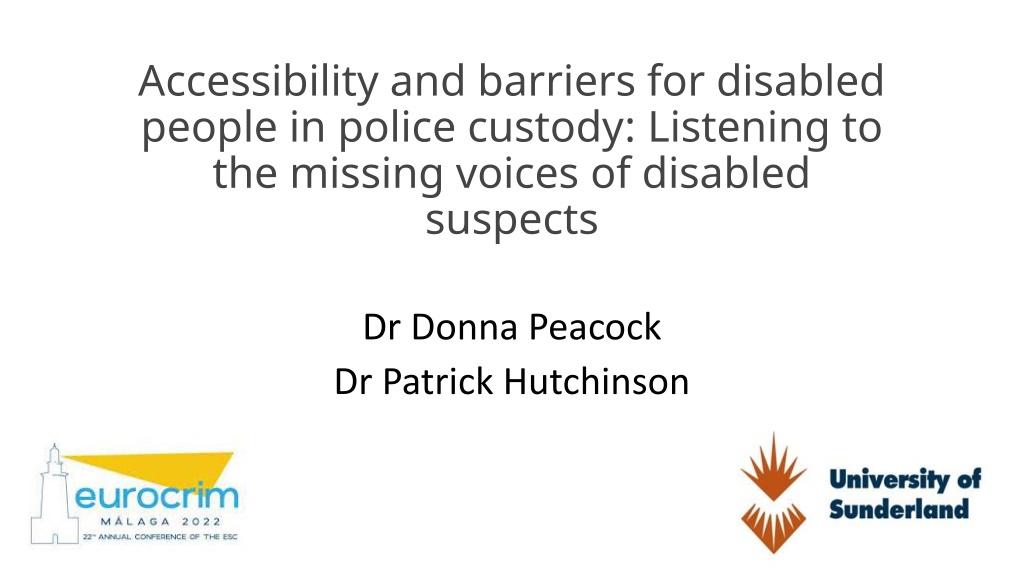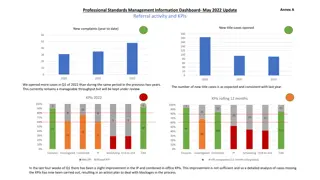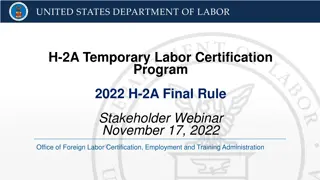
Understanding Disability in Police Custody: Overcoming Barriers and Empowering Voices
Explore the challenges faced by disabled suspects in police custody, shedding light on the disproportionate disempowerment experienced. Learn about the liminal state of custody and how it affects detainees. Gain insights into the overrepresentation of disabled perpetrators in the criminal justice system and the need for inclusive approaches.
Download Presentation

Please find below an Image/Link to download the presentation.
The content on the website is provided AS IS for your information and personal use only. It may not be sold, licensed, or shared on other websites without obtaining consent from the author. Download presentation by click this link. If you encounter any issues during the download, it is possible that the publisher has removed the file from their server.
E N D
Presentation Transcript
Accessibility and barriers for disabled people in police custody: Listening to the missing voices of disabled suspects Dr Donna Peacock Dr Patrick Hutchinson
Disabled Perpetrators and Suspects The concept of disability has been largely overlooked within studies of crime and victims (Thorneycroft and Asquith 2014; Macdonald and Peacock forthcoming) Disability scholars have advocated for the voices of disabled people to be heard within knowledge production, policy formulation and service delivery (Oliver, 2009) Disability is generally seen as a health issue with low impact on offenders or victims' experiences within the CJS (Soothill 2008; Shaw et al 2012) Typically, a biomedical deficit model of disability is used to explain increased risk of offending behaviours (often linked to disorders) (Soothill 2008; Peay 2011; Macdonald 2012) Disabled perpetrators are overrepresented in criminal justice (Richards and Ellem 2019; Hyun et al. 2014; Thorneycroft and Asquith 2021)
Police Custody The custody environment creates within the detainee a liminal state between offending and non offending, between state control and society, between freedom and confinement (Woof and Skinns 2017) The custody environment has potential to offer positive intervention when a person is in crisis (Skinns et al 2017) A detainee can experience diversion, support, and a reaffirmation of their place in society (Loader and Mulcahy 2006, Bradford et al. 2014) More often, suspects experience custody negatively, due to the legitimate exercise of power by the police via evidence gathering techniques, loss of liberty and property (Skinns et al 2017)
Disproportionate Disempowerment Disproportionality of disempowerment leads us to question legitimacy Apparatus for control have disproportionate impacts for disabled people. Consider: Use of handcuffs/ restraints for people who use sign language Check in desk heights which are typically raised as designed to be stood at by the suspect Sensory conditions and over/under stimulation for neurodivergent detainees or those with mental health conditions (lighting/ sounds/ smells/ clothing for eg) Written material about rights and entitlements for blind/ visually impaired Restriction of medication for people with pain/ neurodivergent conditions/ psychosis Removal of mobility aids
How did being in police custody make you feel? I felt very vulnerable and scared I was treated like a criminal I was confused and upset so I just sat in the cell and cried. It made me feel belittled and embarrassed I felt completely empty. Horrible Frightened. Traumatised. Disorientated. Confused. Disempowered. Disbelief. I d forgotten how dehumanising it was
The Physical Environment Dirty. Brutal. Dimly lit. Very small exercise yard. Basic food. Under 24-hour suicide watch. No change of clothing or washing facilities (detained over 48 hours) Smelt of urine Harsh lighting Very noisy
How your disability or health condition affected your experience My XXX condition began to worsen and [I] told them they didn't do anything, or even ask if I needed anything They took me to the police station in the back of a caged van handcuffed My health condition meant I didn t understand what I had done, and no one would explain to me. All my personal belongings including medication had been taken off me They had me on suicide watch and wouldn t let me see a doctor or be in the cell on my own
How your disability or health condition affected your experience I dissociated. I sat and stared out the window at the clock. I don t remember how I felt, but I don t think I allowed myself to feel a lot Found slumped over in cell and taken to hospital My mental health affected this experience as it made me feel low and worse with thoughts going around in my head I remember being told I was good up until fingerprints as it hurt me The officer told me that I was mentally ill and a liar
In your opinion, what could be done to make the environment and the procedures in police custody more accessible for disabled people? They should have asked about medical conditions at the beginning of the process They should have been more informative of what they were doing The procedures in police custody could have been more supported for people with a disability or long term health condition Procedures should be explained better so that people understand what is happening to them and what to expect They should have been able to access my health records to give them a background of my health
Conclusions Physical and communication barriers can be designed out by careful planning of the physical environment and the delivery of information in accessible formats Difficulty around individuality of experience/ impact of conditions which can be improved by training and better communication Respondents wanted better communication during being detained about what was happening to them and why Overwhelmingly, respondents wanted to be able to discuss their needs and to be listened to when they did














